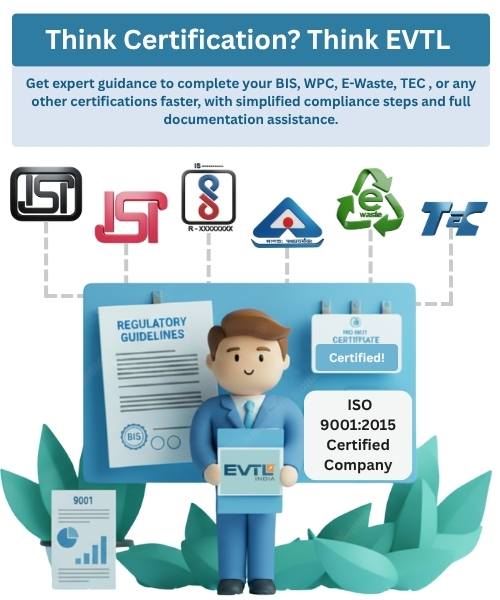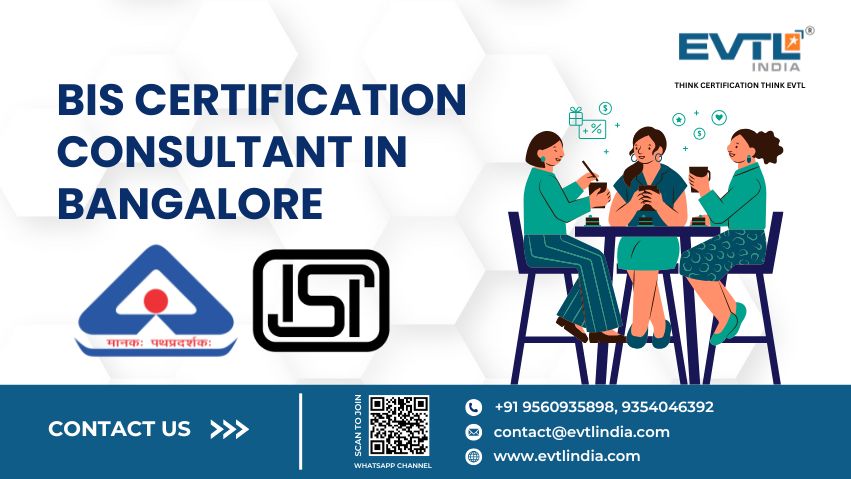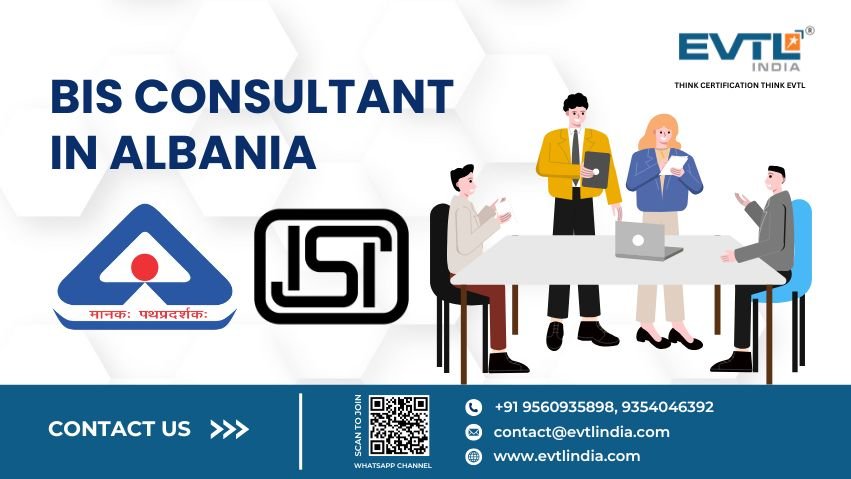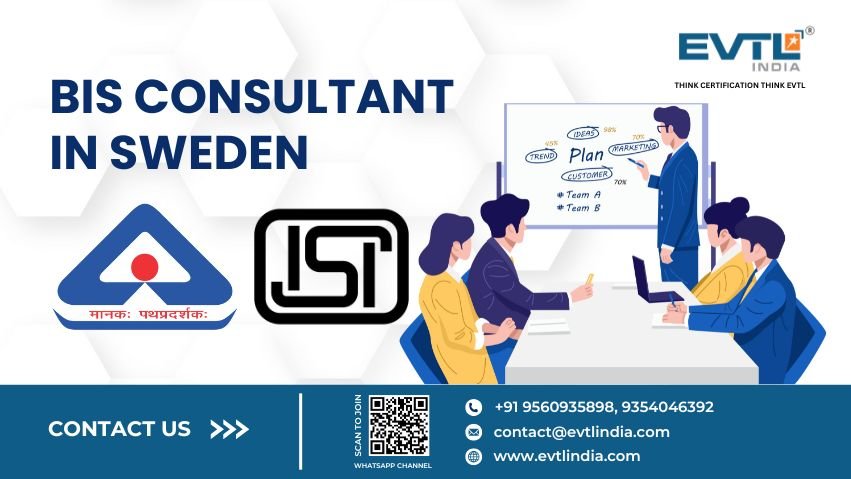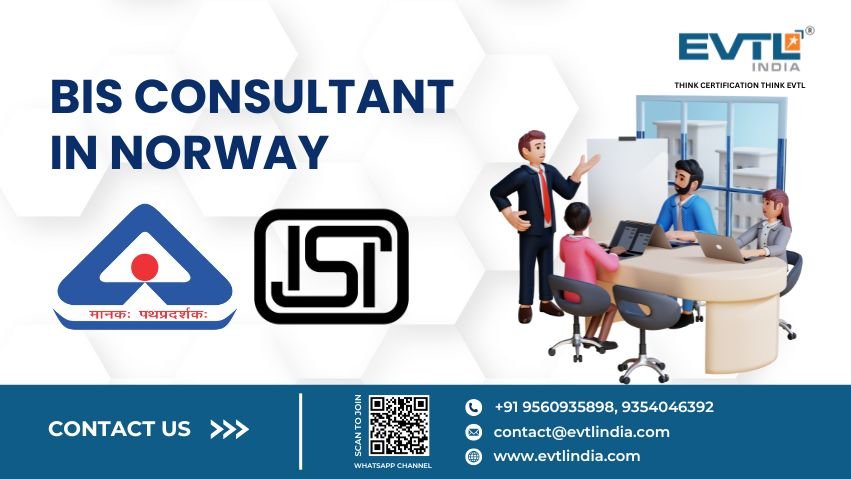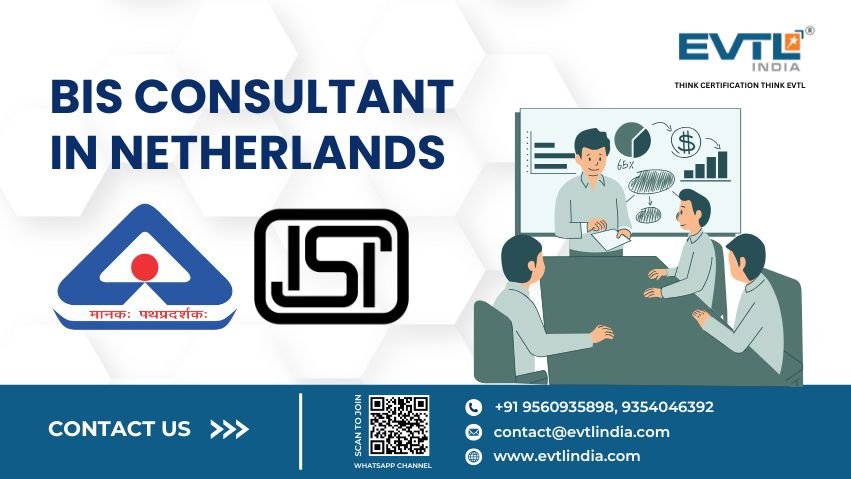Get A Quote
BIS Certification Schemes, Process, Documents, Fees
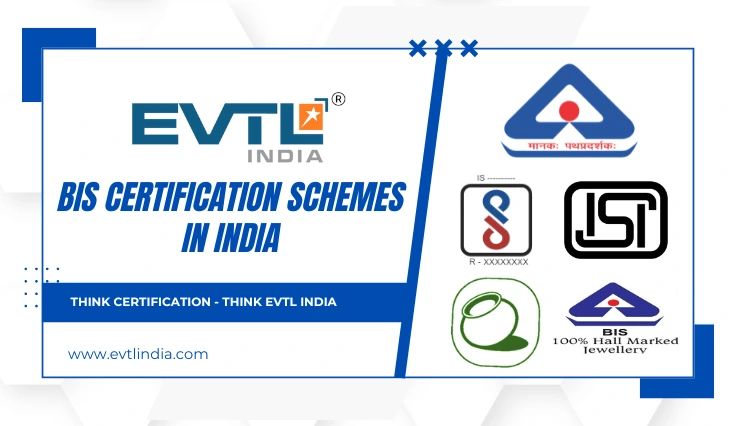
In today’s competitive and quality-conscious market ensuring product safety and standard compliance is not just beneficial—it’s essential. For manufacturers aiming to sell their products in India BIS Certification serves as an official mark of quality, trust, and compliance.
Though voluntary for many products, the Indian Government mandates BIS Certification for specific items to protect consumer interests, safeguard national security, and encourage fair business practices. This comprehensive guide explores what BIS certification is, why it matters, how to get it, and how EVTL India, a leading BIS Consultant, can help you succeed.
What is BIS Certification?
BIS Certification is the process through which the Bureau of Indian Standards (BIS) certifies that a product meets the requirements of relevant Indian standards. BIS operates under the Ministry of Consumer Affairs, Food, and Public Distribution, Government of India. Products bearing the ISI mark—India’s most trusted quality symbol—are considered safe, reliable, and of high quality.
Objectives of BIS Certification
The primary goals of mandatory BIS Certification include:
Public Safety – Ensures that products don’t pose hazards to consumers.
Quality Assurance – Guarantees consistent product performance and durability.
Environmental Protection – Promotes eco-friendly manufacturing.
Fair Trade Practices – Prevents substandard, counterfeit, and deceptive products.
National Security – Stops the circulation of harmful or insecure goods in the market.
Core Activities of BIS
The Bureau of Indian Standards plays a multi-dimensional role across India’s industrial and consumer landscape:
1. Standard Formulation
BIS drafts and publishes Indian Standards for various products and services, ensuring consistent quality benchmarks.
2. Product Certification and ISI Marking
BIS licenses manufacturers to use the ISI Mark, indicating conformity with Indian standards. This certification is crucial for both domestic and imported products.
3. Testing Facilities
BIS operates advanced laboratories that test product samples to ensure safety, performance, and quality compliance.
4. Training & Awareness
BIS conducts training, seminars, and workshops to educate stakeholders about standards, certification, and compliance.
5. System Certification
BIS certifies quality management systems (QMS), environmental management systems (EMS), and other ISO-based schemes.
Types of BIS Certification Schemes
BIS runs multiple certification schemes to cater to different product types and manufacturers:
1. Foreign Manufacturer Certification Scheme (FMCS)
Launched in 2000, FMCS enables foreign manufacturers to sell products in India by obtaining BIS licenses to use the ISI mark.
Key Requirements:
Applies to all products except Electronics & IT goods.
A mandatory Authorized Indian Representative (AIR) must be appointed to coordinate with BIS and ensure compliance.
The BIS Foreign Manufacturer Certification Department (FMCD) oversees the issuance of licenses under FMCS.
2. Domestic Manufacturer Certification Scheme
This is India’s core ISI mark certification scheme. It allows domestic manufacturers to affix the ISI mark to products that conform to Indian standards.
Highlights:
Requires a BIS audit of manufacturing facilities.
Testing of product samples in BIS-approved labs.
ISI Mark = trust, compliance, and quality assurance.
3. Compulsory Registration Scheme (CRS)
Introduced in 2012, this scheme focuses on Electronics and IT products. It requires manufacturers to:
Get products tested in BIS-recognized labs.
Submit self-declaration of conformity.
Obtain a Registration Number and affix the Standard Mark on every product.
CRS applies to over 79 electronic goods, including LED lights, mobile phones, power banks, adapters, etc.
4. Hallmarking Scheme
This scheme certifies the purity of precious metals like gold and silver. BIS registration is mandatory for jewellers to legally manufacture or sell hallmarked jewellery.
Key Elements:
BIS-approved Assaying and Hallmarking Centres handle testing and stamping.
Ensures authenticity and protects consumers from fraud.
5. Eco Mark Scheme
This scheme promotes environmentally friendly products. Items qualifying under this scheme carry both the ISI Mark and Eco Logo.
Product categories include:
Soaps, detergents, packaging materials.
Electrical and electronic goods.
Food items, paints, textiles, and cosmetics.
Products Requiring BIS Certification
While BIS certification is optional for many goods, it is mandatory for over 380 products, including:
Consumer Goods: Pressure cookers, helmets, geysers, toys.
Electronics: Laptops, smartphones, power supplies.
Construction Materials: Cement, steel bars, wires.
A voluntary BIS certification can also boost brand credibility, even if not required by law.
Benefits of BIS Certification
Obtaining BIS certification offers numerous advantages:
Consumer Confidence: Buyers trust BIS-certified products more.
Regulatory Compliance: Seamless approval from Indian authorities.
Market Access: Entry into government tenders and regulated markets.
Competitive Edge: Differentiates your brand from uncertified competitors.
Export Advantage: Helps Indian exporters meet international expectations.
BIS Certification Process: Step-by-Step
Whether you're a domestic or foreign manufacturer, the process to get BIS certification includes:
- DocumentationPrepare business license, trademark certificate, product specifications, testing reports, and a manufacturing flowchart.
- Application SubmissionFile the application online or offline with all documents.
- ScrutinyBIS reviews your application and requests corrections if needed.
- Factory AuditBIS inspects your manufacturing premises to assess quality controls.
- Product TestingProduct samples are tested in BIS-approved laboratories.
- License GrantOnce tests are cleared and the audit is successful, BIS issues the license and you can use the ISI mark or registration number.
Documents Required for BIS Certification
Business Registration / License
Trademark Certificate
Technical Product Specification
Manufacturing Process Flowchart
Product Literature & Machinery List
Test Reports from BIS-approved labs
Authorization Letter (for AIR)
Cost of BIS Certification
The total cost varies based on product category, number of models, and applicant location.
The Role of Authorized Indian Representative (AIR)
Foreign manufacturers must appoint an AIR to obtain BIS certification. The AIR acts as the local compliance contact for BIS.
Nomination Criteria:
If a liaison or branch office exists in India, it becomes the AIR.
If not, the brand/trademark owner in India can act as AIR.
Otherwise, an independent third party can be nominated.
Why Choose EVTL India for BIS Certification?
EVTL India is one of India’s top BIS Consultants with extensive experience helping both Indian and global manufacturers achieve full BIS compliance.
EVTL India Offers:
Expert Documentation & Filing Support
Audit Preparation & Guidance
Lab Testing Coordination
AIR Services for Foreign Clients
Quick Turnaround & Complete Transparency
Whether it’s your first certification or a new product launch, EVTL India ensures you meet all BIS requirements quickly and efficiently.
Conclusion
BIS Certification is more than just a regulatory formality—it’s a seal of trust, safety, and quality. For any manufacturer targeting the Indian market, obtaining BIS certification is crucial for legal compliance, consumer acceptance, and long-term brand success.
Partnering with a seasoned consultant like EVTL India simplifies the process and ensures full regulatory adherence, helping you unlock India’s vast and growing market with confidence.
You can contact us via email at contact@evtlindia.com or by phone at 9560935898. Feel free to get in touch with us anytime for the support you need.
BIS ISI Mark Certification | BIS-CRS Certification | EPR E-WASTE | WMI Registration | BIS Certification For Footwear | TAC & IMEI Registration | BIS FMCS Page | TEC | EPR Registration for Plastic Waste Management | EPR Registration for Battery Waste Management | EPR Registration For Used Oil | EPR Registration for Tyre Waste Management | WPC ETA License | NOC | LMPC | Legal Metrology | Trademark Registration | ISO Certification | EMI-EMC Test | Toys | GEM Registration | EPCG Scheme | LM 79 & LM 80 | ROHS Approval | CDSCO Registration | RF Testing | IP Rating Test | MSME & NSIC Registration | BIS Certificate for Conformity | BIS Scheme-X Certification | Hallmark Registration | Laboratory Recognition Scheme | ECO-MARK Certification | RDSO | CE Certification | List Of Equipments | US FDA Registration | Lab Setup & Lab Equipment |
Free Call Back
Why Choose EVTL INDIA
Expertise in Indian Regulatory Standards
End-to-End Support
Trusted by Top Indian & Global Brands
Fast Processing & Transparent Pricing
Strong Liaison with Indian Authorities
Company Profile